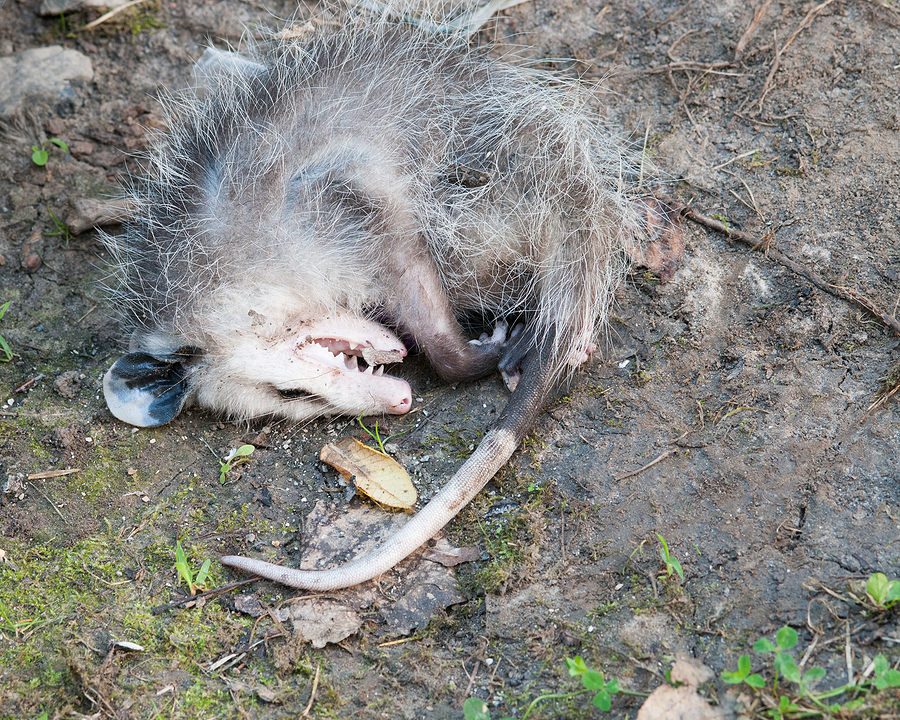For many homeowners, the thought of discovering a dead wild animal on their property is unsettling. It’s not just the sight of the carcass that may shock or disturb; it’s also the potential for health hazards and the practical matters of disposal. Navigating this situation responsibly requires both knowledge and care.
In this comprehensive guide, we’ll walk you through the best practices for identifying, handling, and disposing of an animal carcass. This is especially crucial for those living in Indiana, as state regulations for wildlife management and disposal govern the actions of individuals and government agencies alike.

The Unsettling Discovery of a Dead Animal
The discovery of a dead wild animal on your property can elicit a range of emotions, from surprise and sadness to fear and discomfort. While it’s a circumstance no one wishes to face, it is a reality that sometimes requires immediate attention. Not only does the critter itself need to be addressed, but the situation also calls for thoughtful navigation of both legal and health considerations. Here’s what you need to know if this situation arises at your home.
Tips for Identifying the Deceased Animal
The first step in dealing with a dead animal on your property is proper identification. This can sometimes be a tricky task, especially if the animal is not intact or in an advanced stage of decay. If you encounter an unknown carcass, look for distinguishing features such as size, fur color, and any remaining physical traits that can help categorize the animal.
Typical Signs of a Dead Animal:
- Limpness and lifelessness
- Stiffness or rigor mortis
- The presence of flies or other scavengers
- The smell of decomposition
Safety Precautions for Handling an Animal Carcass
The next step is to consider safety. Handling an animal carcass comes with potential health risks, including diseases that can be transmitted to humans and pets. It is essential to take precautions to protect yourself before attempting to handle or remove the carcass.
Protective measures to Consider:
- Wear thick gloves and a mask
- Use a shovel or other tool to avoid direct contact
- Wash thoroughly with soap and water after any handling
Ethical and Legal Obligations
Wildlife regulations are in place to protect animals and people. It’s important to be aware of the specific laws in your area regarding the handling and disposal of dead critters. Neglecting these regulations can lead to legal repercussions and fines.
Indiana Wildlife Laws:
- Certain species may be protected (e.g. Bats, Chimney Swifts, Cerulean Warblers, etc.)
- Community guidelines for disposal may apply
- Failure to follow procedures can result in penalties
Recommended Dead Animal Disposal Methods
Once you have safely approached and identified the critter, the question of disposal arises. There are several methods for getting rid of the carcass, each with its own set of considerations.
Government Services:
- Many communities offer dead animal pickup services
- Contact your local animal control or environmental services department
DIY Options:
- Burial (where legal and appropriate)
- Incineration
- Composting (in some instances)
Preventing Future Nuisance Wildlife
The best strategy for dealing with dead wildlife on your property is to avoid it entirely. Prevention is key, and there are several steps you can take to minimize the likelihood of wildlife presence that leads to such situations.
Tactics for Wildlife Deterrence:
- Secure trash in animal-proof containers
- Seal openings in and around your home
- Remove potential food sources, such as bird feeders or pet food
Professional Wildlife Removal and Control
In some cases, the complexity or unpleasantness of a dead animal encounter may necessitate the assistance of professionals. Wildlife removal and control companies offer a range of services, from simple carcass removal to broad reaching wildlife management solutions. For those who are either unequipped or uncomfortable with DIY approaches, qualified assistance can provide peace of mind and thorough resolution.
Conclusion
While the handling of an animal carcass is not a situation any homeowner relishes, it is one that requires action. By understanding the process of identification, taking the necessary safety and health measures, respecting the law, knowing proper disposal methods, and taking steps to prevent future occurrences, you can ensure your property remains as safe and as free as possible from disruptions of this nature.
For help with nuisance animal abatement in Indiana, trust our licensed and insured professionals. Contact Modern Wildlife Control at 317-847-6409 for licensed and insured animal removal and infestation cleanup in Indianapolis, Indiana. We serve both residential and commercial clients.
Related Posts:
The Benefits of Professional Dead Animal Removal Services
How to Safely Get Rid of a Dead Animal on Your Property
What To Do If You Find a Dead Animal on Your Property
